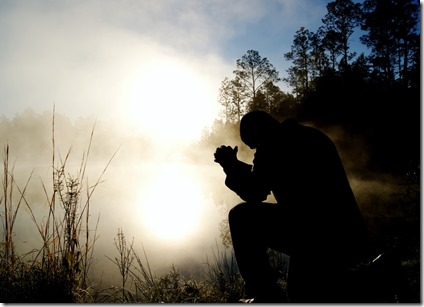 The preacher catches wind that someone in his congregation is living in egregious sin. And this Sunday his text just so happens to be about that particular sin. That’s a bit unsettling, but he actually preaches verse-by-verse for moments such as this. Nobody can accuse him of cherry picking a verse just to uncourageously deal with sin behind a pulpit instead of face to face. Everybody knows that he’s preaching this text because that’s what is next in the sermon series.
The preacher catches wind that someone in his congregation is living in egregious sin. And this Sunday his text just so happens to be about that particular sin. That’s a bit unsettling, but he actually preaches verse-by-verse for moments such as this. Nobody can accuse him of cherry picking a verse just to uncourageously deal with sin behind a pulpit instead of face to face. Everybody knows that he’s preaching this text because that’s what is next in the sermon series.
So he ascends to the pulpit and preaches his heart. He preaches truth. He doesn’t compromise. He calls sin what it is, speaks of the odiousness of this particular sin, and calls for repentance.
It hits the target. The man living in that sin feels guilty, ashamed, and even a bit angry.
He leaves. Never comes back.
How We Soothe Our Pain of Their Departure
Some might hear a story like this and assume that the preacher should have coddled a bit more and not been quite so bold in naming sin. That’s not a conclusion, though, that most in my tribe will come to. They believe, I think rightly, that we must be truthful. Sin is sin. It kills. We cannot pretend it doesn’t. It is loving to address sin.
But I also think we can be guilty of coddling ourselves a bit too quickly. I think we can comfort ourselves with a gnat of truth but be blind to a camel of error. What we’ll do in these moments is reassure ourselves that we did our job by preaching the truth, and doing it so compellingly that the sinner was cut deeply but sadly they are choosing their sin over Christ. We were faithful. They are choosing sin.
Now, a position like this can be defended by the Bible. There are instances, like the Rich Young Ruler or Demas in love with the present world, where someone walks away from the kingdom because sin is too sweet.
Sadly, people do hear the message of the kingdom and choose the fleeting pleasure of sin over the treasure of Christ. But is it possible that the reason this person is “choosing their sin” is because they aren’t seeing the beauty of Jesus? Don’t misunderstand. God removes scales from eyes and allows us to see Jesus. But our job as hope-peddlers, as good-news bringers, is to strike the major note of the beauty of Jesus and His kingdom.
I do agree with Thomas Watson that until sin be bitter Christ will not be sweet. But I kind of wonder if he has that flipped a bit. What if we said, “Until Christ is sweet, sin will not be bitter”. That seems to me to be what happens in New Testament narratives when radical change takes place.
The Jesus Way
Consider Peter on a boat encountering the all-powerful Jesus telling him to cast out into the deep waters. What happens to Peter is similar to what happened to Isaiah the prophet. He catches a glimpse of glory and immediately his own sinfulness becomes apparent. You don’t really have to preach on sin when we truly encounter the holy. It’s so glaringly obvious that we’re undone and crying out for healing.
Yes, there are stories where people walk away. But the major note of the New Testament mission seems to be Jesus captivating people with his good-news bringing as he calls people to himself. For the most part He doesn’t start with “naming the sin” but captivating with love, hope, goodness, rescue, etc. If this is the major emphasis I believe it would do us well to ask the tough questions of our preaching. Am I preaching Christ as compellingly as I’m preaching sin? Am I being as clear about the good news as I am naming sin?
“They left church because they wanted their sin” doesn’t necessarily mean you’ve been a faithful gospel (good news) preacher. It might mean that you’ve actually not preached Christ as beautifully as He is, and so the sin still looks more precious. Not always, but maybe.
Let us be truthful about sin. But let us preach Christ so wonderfully and beautifully that the bitterness of sin becomes obvious held next to the radiance of His splendor.
—
Photo source: here


